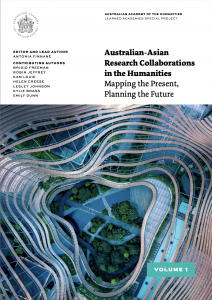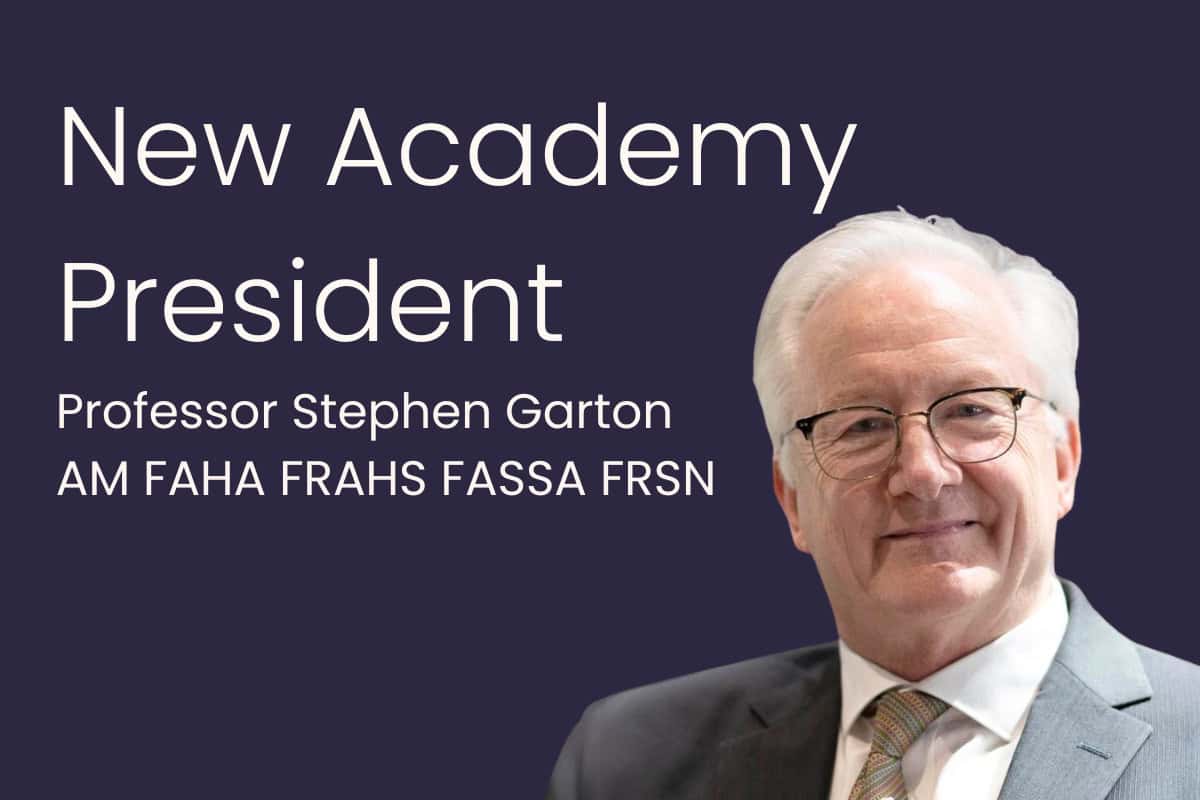Until recently, there has been a lack of readily available data in Australia about humanities teaching and research in the Asia region, leaving a knowledge gap when it comes to Australia’s relationships with some our closest neighbours, and the potential for collaboration now and into the future.
Our new report released today Australian-Asian Research Collaborations in the Humanities: Mapping the Present, Planning the Future marks a major step forward in filling that gap through tracing existing patterns of collaboration in humanities disciplines to enable us to build on this capacity.
The Academy’s President, Professor Lesley Head FASSA FAHA, welcomed the report and its contribution to building shared fields of knowledge between Australia and the Asia region. ‘On the release of this report we take the opportunity to reaffirm the Academy’s commitment to international collaboration and to strengthening regional networks.’
Led by Academy Fellow and leading historian of China Professor Antonia Finnane FAHA and supported by a team of Fellows from the Academy with expertise in Asian and cultural studies, the report provides a snapshot of humanities in China, Hong Kong, India, Indonesia, Japan, South Korea, Singapore and Australia.
‘It’s very easy for Australia to take its eyes off Asia’ said Professor Finnane. ‘Historically we have seen a succession of rediscoveries of Asia by government, by institutions, followed by periods of retreat, leading to fluctuations in student numbers, academic appointments in particular fields, and the appearance and disappearance of whole areas of study.

‘Universities and governments in Australia would benefit from a large database of the humanities in Asia as it would enable them to track grassroots scholarly connections, identify areas and gaps in expertise, and provide present day information about the research concerns within Asia.’
It is the humanities disciplines, Professor Finnane points out, that provide the clearest window into those interests of the states and societies in Asia that find expression in the areas of the arts, media, film, philosophy, history, and religion – making those areas even more essential to map.
The report was undertaken at a time when international students were arriving from the region in growing numbers, larger cohorts of local students were studying in Asian countries, and substantive collaborative work was underway with individual scholars and institutions in Asia. However, the impact of COVID-19 on the research community has meant that many opportunities for collaborative research have been missed or remain on hold.
Despite this, the report and its findings has ongoing value, especially as we begin to recover from the impact of the pandemic.
‘Maintaining current connections, expanding networks remotely, and proceeding with the planned writing and publishing projects that link different realms of humanities scholarship are activities that might help preserve something approaching the status quo in collaborative research’ said Professor Finnane. ‘In the different future that now beckons, engagement with Asia remains paramount.’
The launch of this report coincides with the release of our International Collaboration statement. The statement highlights the many benefits of international collaboration and reiterates the importance of understanding how to identify and manage risks as we work together in addressing challenges that cross national borders.
Download the report:
Volume 1 of the report is available to download here. Volume 2, containing profiles of humanities research strengths, organisational structures, and policy settings in China, Hong Kong, India, Indonesia, Japan, Korea, Singapore and Australia will be published online later in the year.
The Academy’s Position Statement on International Collaboration is available here.
Acknowledgments:
The report is the outcome of a Learned Academies Special Project, funded by the Australian Research Council. The scheme invests in the future of Australian research by providing vital funds to the Learned Academies to support strategic disciplinary initiatives.
The contributing authors are Professor Antonia Finnane FAHA, Ms Brigid Freeman, Professor Emeritus Robin Jeffrey FAHA, Professor Kam Louie FHKAH FAHA, Emerita Professor Lesley Johnson AM FAHA, Associate Professor Helen Creese FAHA, Dr Kylie Brass and Dr Emily Dunn.



